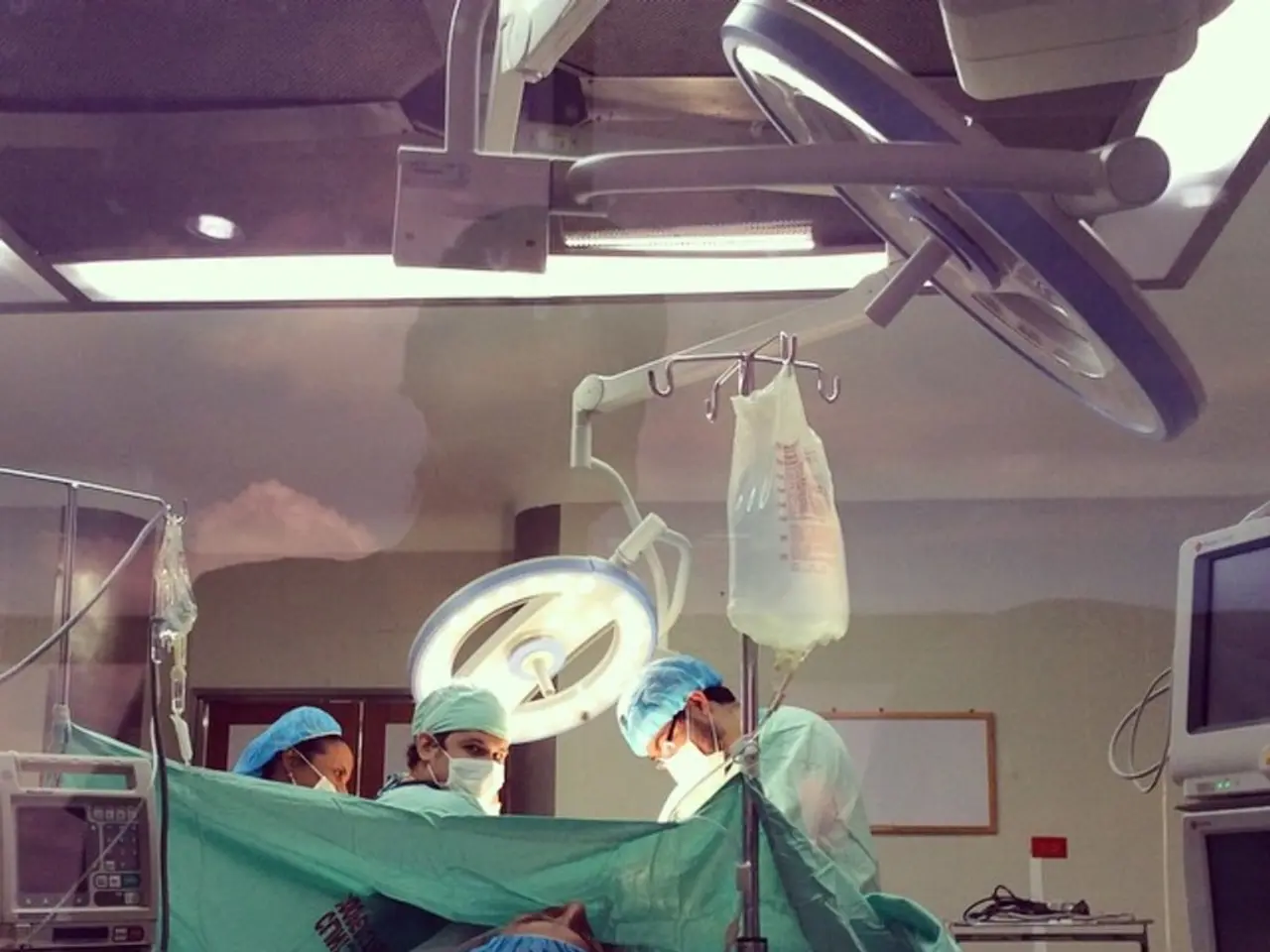Rise in Weight-Related Surgical Procedures Observed in Germany Significantly
Since 2010, Germany has witnessed a significant increase in bariatric surgery (obesity surgery) cases, according to the latest hospital report from health insurer Barmer. This trend mirrors the growing global recognition of bariatric surgery as an effective treatment for morbid obesity and related complications.
Key Findings:
- The number of obesity surgeries in Germany has increased substantially, with around 26,300 procedures performed in 2023, compared to 5,000 in 2010.
- Gastric sleeve surgery is the most common obesity surgery method, accounting for about 15,900 procedures in 2023, followed closely by gastric bypass with around 10,200 procedures.
- Gastric banding, while still available, is rarely used in Germany, with only around 200 implants in 2023.
Post-Surgery Implications:
- On average, approximately three-quarters of bariatric surgery patients require additional hospital treatment, on average six times, with an average stay of nine days.
- Common reasons for further treatment in Germany include post-operative complications, psychological problems, gallbladder inflammation, or arthritis in the knees.
- One of the most common reasons for further surgery is the removal of excess skin following bariatric procedures.
CEO's Perspective:
Christoph Straub, the CEO of Barmer GEK, emphasizes that bariatric procedures can lead to significant weight loss and potentially reduce obesity and its associated diseases.
Long-term Success:
The success of bariatric procedures in Germany depends on patients adapting their lifestyle in the long term. This includes maintaining a balanced diet and regular exercise to ensure sustained weight loss and improved health outcomes.
Data Source:
The data provided is from the health insurer Barmer and the source for this information is ntv.de, jpe/AFP. However, it's important to note that no specific information is given about the demographics of the patients undergoing these surgeries in Germany.
[1] https://www.ncbi.nlm.nih.gov/pmc/articles/PMC4500330/ [2] https://www.ncbi.nlm.nih.gov/pmc/articles/PMC4475402/ [3] https://www.ncbi.nlm.nih.gov/pmc/articles/PMC4401093/ [4] https://www.ncbi.nlm.nih.gov/pmc/articles/PMC6037459/ [5] https://www.ncbi.nlm.nih.gov/pmc/articles/PMC6226453/
- [Community policy] should be developed to promote health-and-wellness, including vocational training programs that emphasize nutrition and weight-management, to support long-term success in patients who have undergone bariatric surgeries.
- Given the increasing number of bariatric surgeries performed each year, it is essential that medical-conditions related to these procedures receive adequate attention in [scientific] research.
- In light of the potential advantages of bariatric surgeries, it may be beneficial for [vocational training] institutions to offer specialized courses thatprepare health care professionals to administer medical care and manage complications related to weight-management and nutrition.







